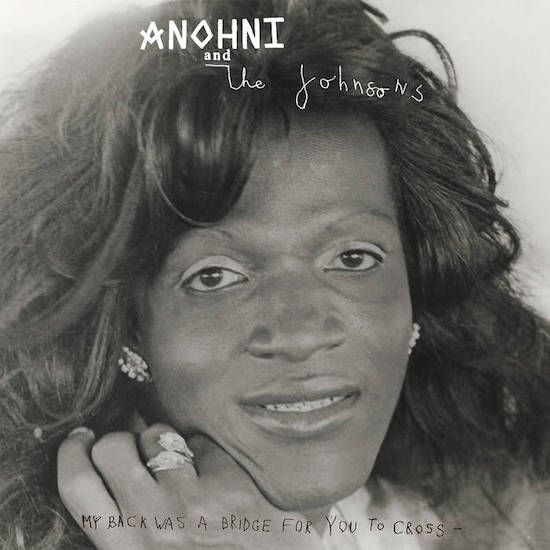Thirty-one years ago, the Gay Liberation Monument by George Segal found its home in Christopher Park, New York. It became the first public art piece dedicated to gay rights, inspired by the Stonewall uprising of 1969. When asked about the statue, Marsha P. Johnson said, “How many people have died for these two little statues to be put in the park to recognize gay people? How many years does it take for people to see that we’re all brothers and sisters and human beings in the human race?” The Gay Liberation Monument was installed on June 23, 1992. Thirteen days later, on July 6, Johnson’s lifeless body was found floating in the Hudson River.
In the middle of that short spell of time, a twenty-one-year-old English-born songwriter and visual artist who had relocated to New York City in 1990 met Johnson. This meeting was hugely influential to the budding artist who would go on to name their band after Johnson, be inspired to write several pieces of work about her and, crucially, continue to campaign and champion LGBTQ+ rights as Johnson had during her life. Anohni recalled this informative interaction upon announcing her latest record, “I sometimes saw Marsha on Christopher Street. I admired her, and fate decreed that on the sunny day before her passing, at the gay pride parade, I thanked her, and told her I loved her, and kissed her hand. She smiled sweetly and just said ‘Oh I love you too, doll.’”
It feels extremely fitting for Anohni to feature a striking black and white portrait of Marsha P. Johnson on the cover of My Back Was A Bridge For You To Cross, her return to the “and The Johnsons” moniker since 2010’s Swanlights following a fruitful period producing music mononymously. There’s an endearing humanity permeating her performance across this masterful record, undoubtedly enhanced by the fact that some of the vocal takes which made the cut were first takes. The emotion anchoring My Back… is raw and sincere, and a much needed light in these difficult times.
Unsurprisingly, the ten songs that make up My Back…’s tracklist are immensely moving in their lyrical content, vocal performance and musicality. It’s difficult to not feel teary-eyed listening to ‘Sliver of Ice’, which was inspired by her final conversations with friend and ‘Fistful of Love’ guest, Lou Reed. Against a soft tremolo guitar, Anohni recounts Reed’s euphoria in simply feeling the shock of cold water on his tongue in his dying days: “Now that I’m almost gone / Sliver of ice on my tongue / In the day’s night / It tastes so good, it felt so right / For the first time in my life.” As the tempered composition develops steadily, the tenderness in Anohni’s delivery of “I love you so much more,” is weighted by an unshakeable sadness that takes hold of both the artist and audience.
The overarching subject matter of My Back… is in no way frivolous. It’s harrowing and often there’s a hopelessness underpinning the sentiments (“I don’t like this place…Can’t endure this misery…I just can’t,” she sings on ‘Can’t) that come from places of grief and frustration of the ways the world is today. Take, ‘Scapegoat’, with its visceral opening verse: “You’re so kill-able / Just so kill-able / It’s not personal / It’s just the way you were born / And in this society / A scapegoat is all I can be.”
In 2022, Anohni and producer Jimmy Hogarth (Amy Winehouse, Tina Turner) collaborated in the studio, inspired by Marvin Gaye’s What’s Going On, they sought to incorporate elements of American soul into My Back’s… sound. This influence is made apparent from the offset with the bright guitar melody illuminating the infectious single, ‘It Must Change’ which incorporates a lush sweeping string accompaniment. The warmth of the instrumentation on this commanding opener reflects on her vocals, unchanged in their power and distinction, even as she repeats, “That’s why it’s so sad.” This sophisticated and lush 1970s sensibility returns on ‘Why Am I Alive Now’, and ‘Can’t’ to great effect.
Elsewhere, the fervent ‘Go Ahead’ (only a minute-and-a-half in length) demonstrates the underlying frustration in some of My Back…’s lyrics. Her delivery, against a scorched guitar riff, is reminiscent of Scott Walker’s impassioned execution on his later material (although more reserved). There are plenty of moments across this record that contain the timelessness and evocative nature of Anohni’s previous material under this guise. The aforementioned ‘Scapegoat’ with its tremendously enveloping arrangement which erupts in its final movement is one such instance that feels to immediately warrant consideration along with the likes of ‘You Are My Sister’. Similarly, ‘Why Am I Alive Now’ also holds significance. It carries over the Marvin Gaye musicality and exploration of social justice, an integral element to Anohni’s artistry.
Prefacing My Back Was A Bridge For You To Cross, Anohni stated that she wanted these songs to “be useful, to help others move with dignity and resilience through these conversations we are now facing.” Certainly, she has delivered a body of work where she has given herself the space to be resilient, vulnerable and inspiring. This crystallizes atop the languid guitar melody of closing track, ‘You Be Free’, where Anohni describes dancing in “violent times” and the difficulty of living day-to-day. She continues, “Done my work / My back was broke,” before urging the listener to be free, “be free for me”. It’s one of the more sparse and simple compositions on the album, yet its message triumphs.


